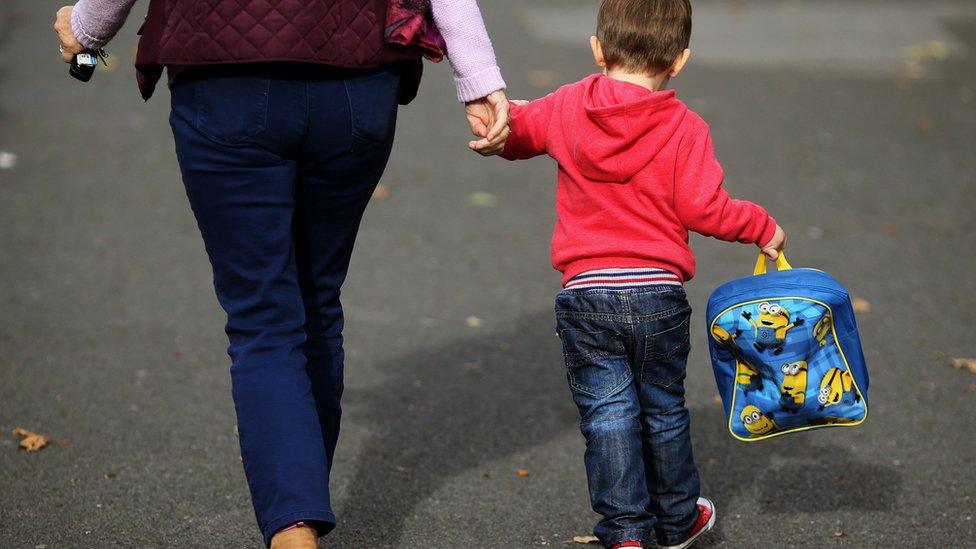Budget 2021: Sunak announces extension to universal credit ┬Ż20 top up
- Published

The chancellor has announced that the ┬Ż20 a week increase in universal credit payments will be extended for another six months.
Rishi Sunak said the measure, which is worth ┬Ż1,000 a year, would help those hit hardest by coronavirus.
But campaigners said the top up, introduced at the start of the pandemic, should be permanent.
Labour said the move does nothing to address insecurity and inequality.
Universal credit is claimed by more than 5.5 million households across the UK.
The payment was increased by ┬Ż20 a week in April 2020 as part of the Chancellor's early economic response to the pandemic.
The Joseph Rowntree Foundation - a charity which researches poverty - says millions of households would have faced an income loss equivalent to ┬Ż1,040 a year if the increase was scrapped, with 500,000 more people driven further into poverty.
Delivering his Budget statement, Mr Sunak said the extension would mean support remains in place until the end of September - "well beyond" the end of the current lockdown in England.
The chancellor also brought forward previously announced changes to help people keep more of their benefit.
From April, Universal Credit claimants who get a loan, or advanced payment while their application is being processed, will get two years rather than one to pay it back.
And maximum repayments will be set at a lower level - 25% rather than 30% of their benefit.
But charities have called on the government to make the top up permanent, saying families need "help and certainty, not a stay of execution".
Imran Hussain, Action for Children's director of policy and campaigns, said: "It makes no sense to cut this lifeline in six months when the furlough scheme will have ended and unemployment is expected to be near its highest - exactly when families will need it most."
He added: "There's no faster way to push more children into poverty than by snatching ┬Ż20 a week out of the pockets of our country's poorest families."
In February, the Commons Work and Pensions Committee said keeping the higher rate until April 2022 must be the "bare minimum".
Labour leader Sir Keir Starmer said the government has "papered over the cracks" in the Budget rather than "rebuilding the foundations".
He accused the chancellor of being "dragged kicking and screaming to extend the uplift in universal credit but only for a few months".
He added that "the threat of losing ┬Ż1,000 a year still hangs over six million families".
He said Labour would keep the uplift until a "new fairer system" could be put in place.
What is universal credit?
Universal credit is a single payment replacing old benefits such as housing benefit and child tax credits.
You can claim universal credit if you are on a low income or are out of work.
The standard allowance varies from around ┬Ż340 to just under ┬Ż600 a month, depending on your age or whether you are single.
You may be eligible to receive more money on top of the standard allowance if, for example, you have children or a health condition.